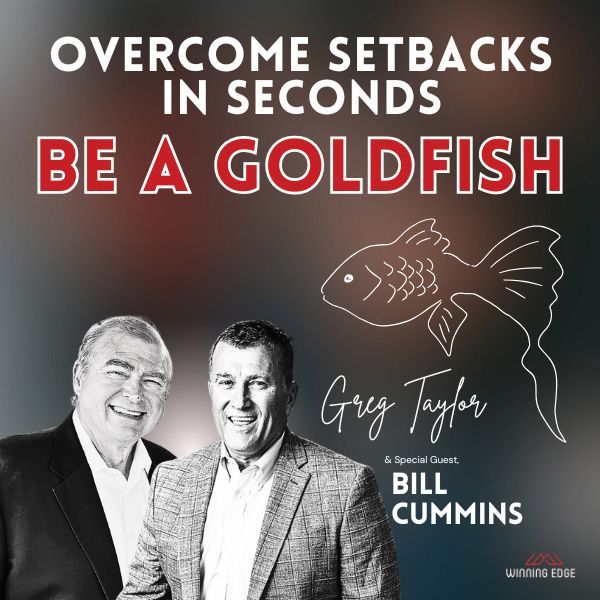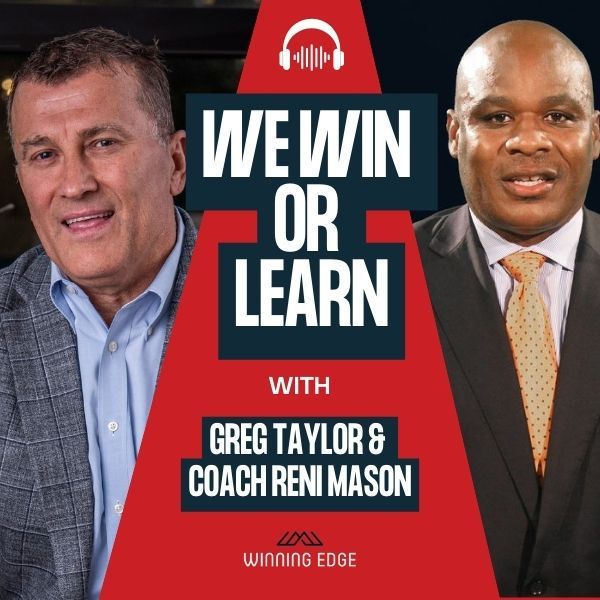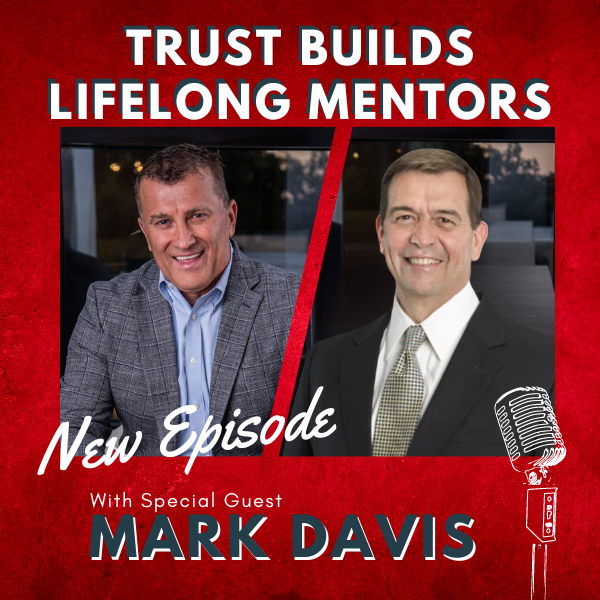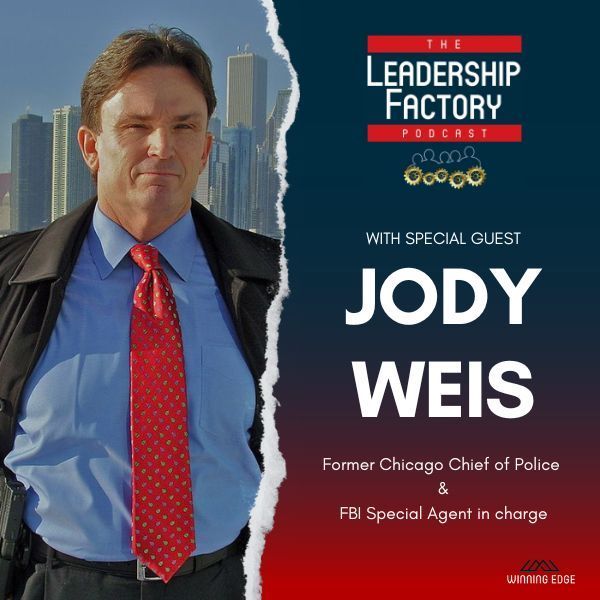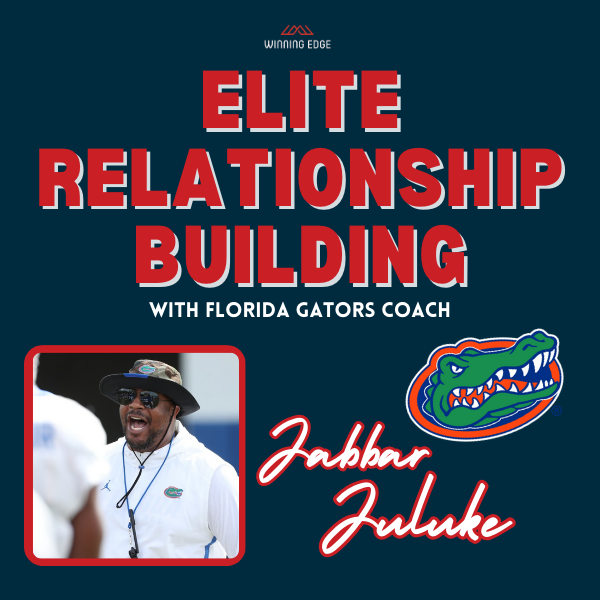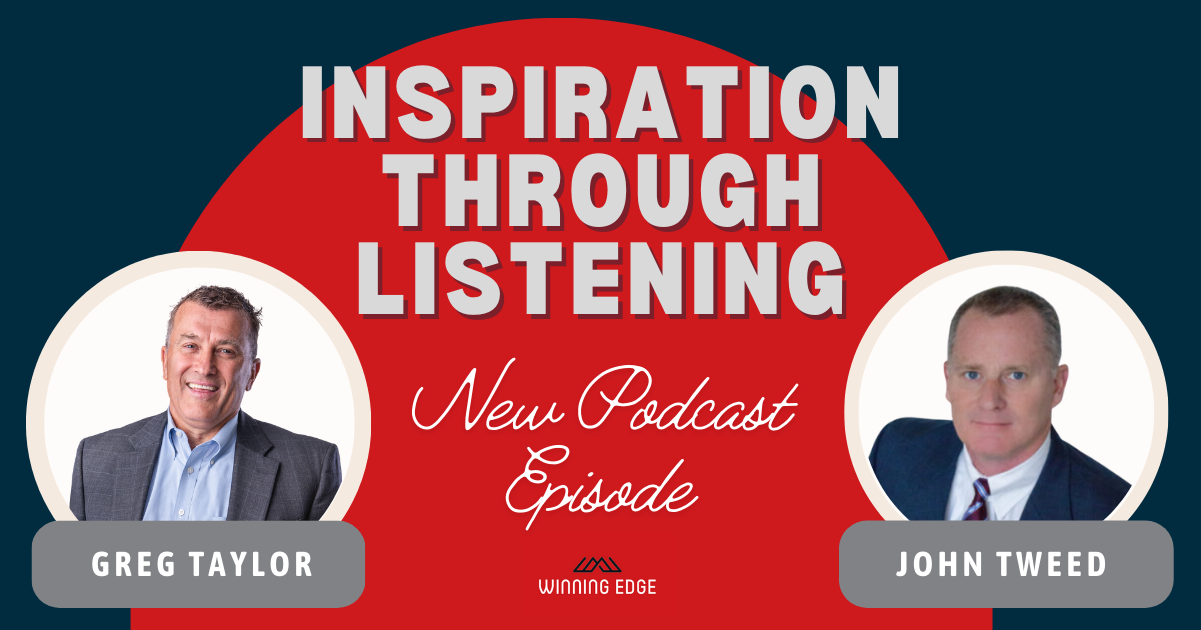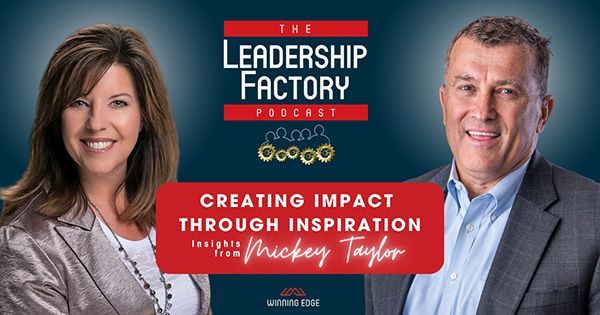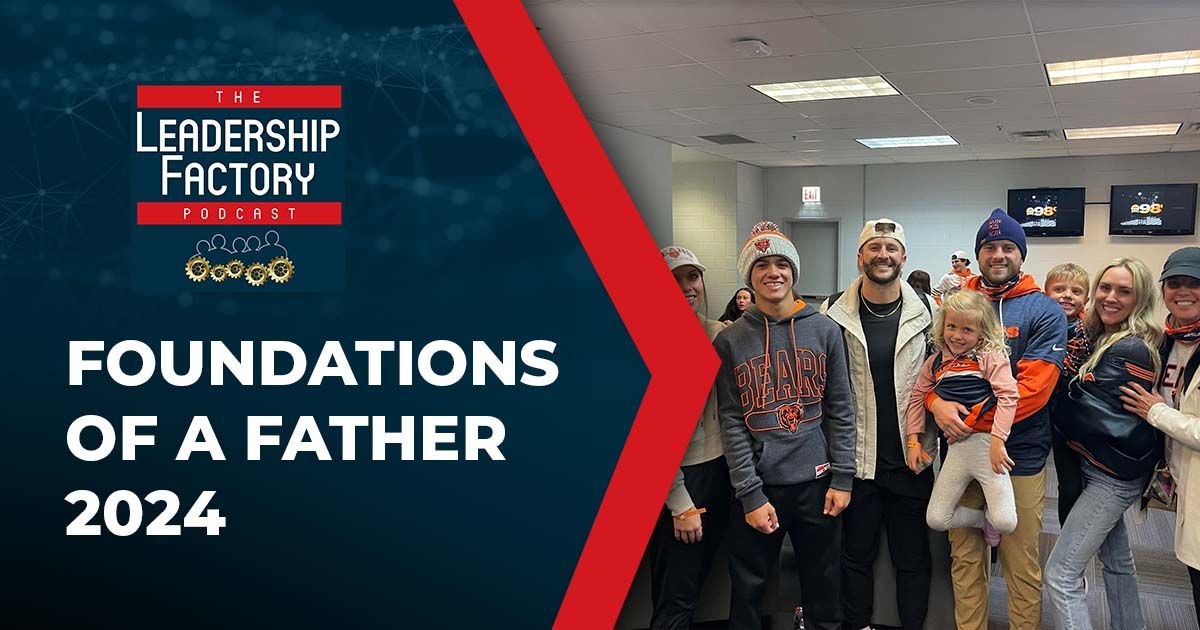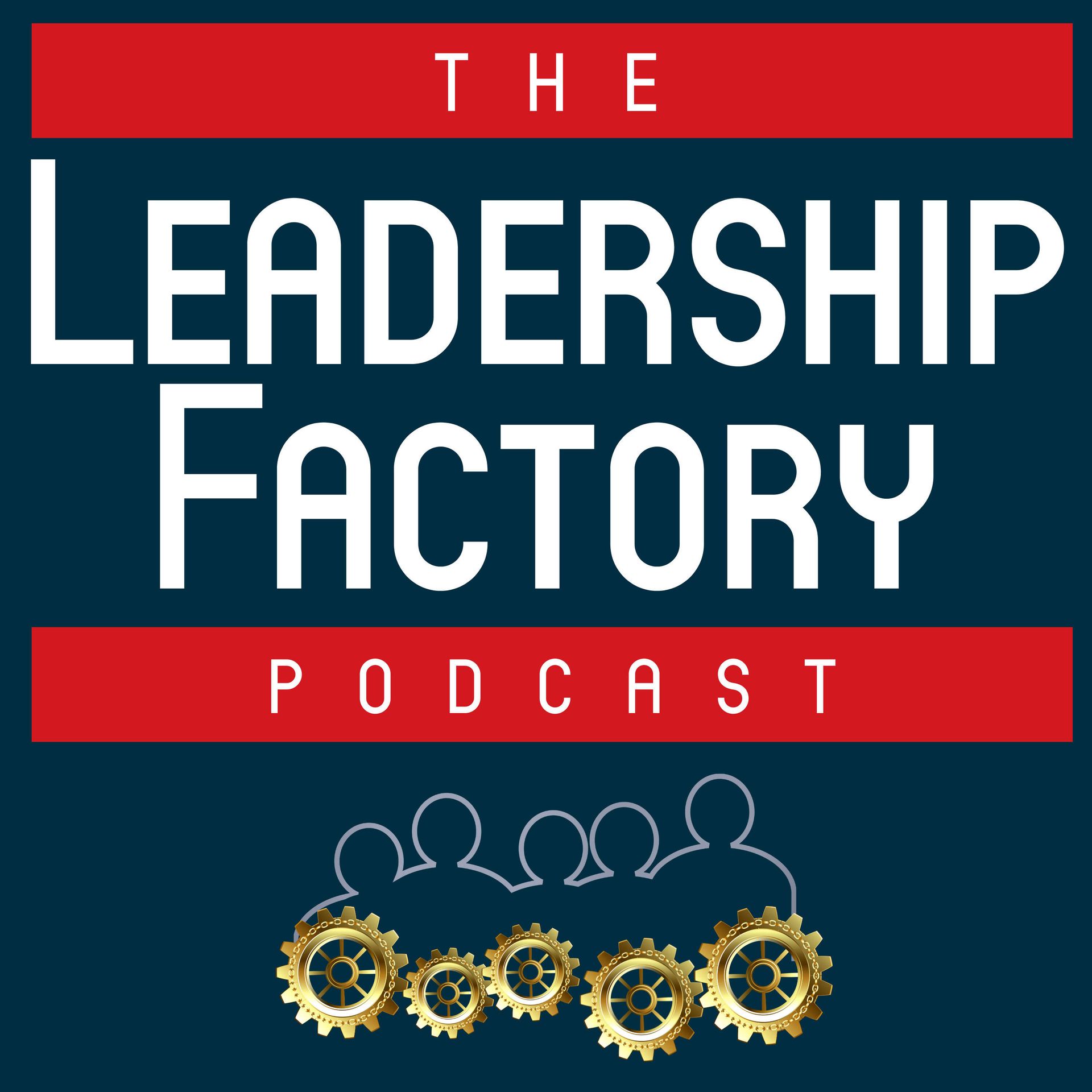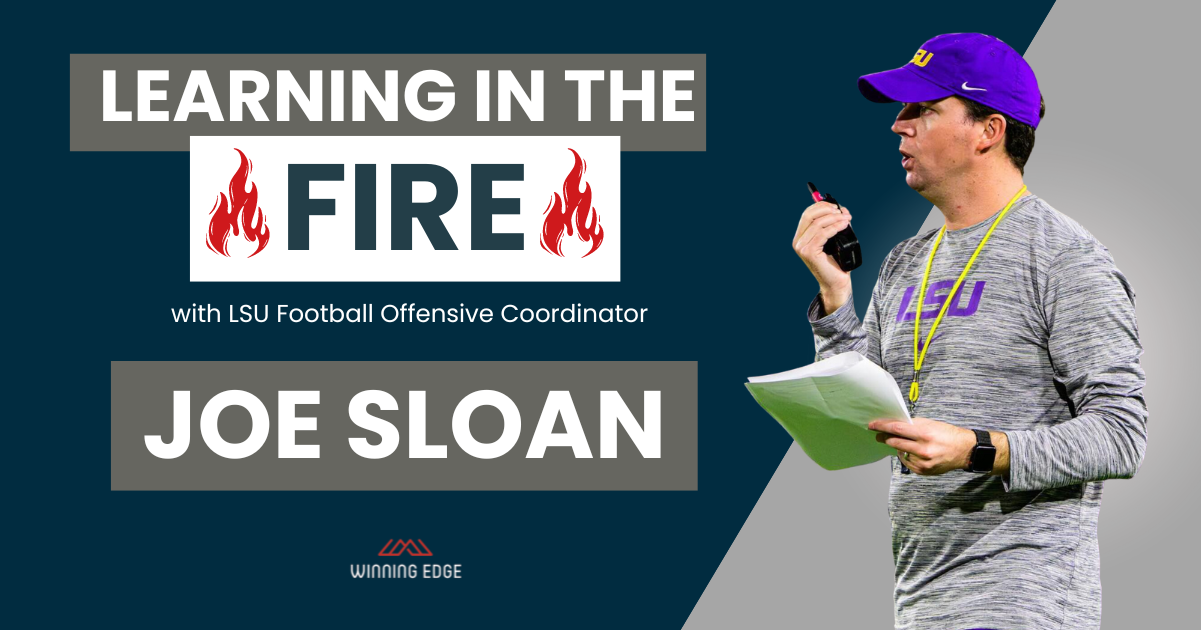
In this episode of the Leadership Factory podcast, host Greg Taylor interviews John Tweed, a distinguished leader with 37 years of experience in the distribution and freight transportation industries.
John recounts his career journey and the mentors that significantly shaped his leadership approach. He also discusses negative experiences, the importance of clear communication, accountability, and trust in leadership, and the significance of spending time with people to build trust and inspire them.
John reflects on the impact of his family, especially his mother, whom he regards as his unsung hero for her unwavering support and resilience as a single mother. He highlights the lessons learned from his family and the importance of empowering others by listening to and valuing their input.
The episode concludes with a mention of John and his wife Kim’s philanthropic efforts through the Tweed Family Foundation, which is dedicated to serving Northeast Tennessee, particularly in addiction recovery and enhancing overall well-being in their community.
---
Listen to the podcast here
Learning In The Fire
With Joe Sloan - Offensive Coordinator For LSU Football
Introduction
In this episode, Greg Taylor chats with Joe Sloan, LSU Tigers' Offensive Coordinator, about inspiring others on their journeys. They define leadership as guiding individuals onto uncharted paths, emphasizing trust and relationship building. Sloan draws from his LSU experiences under Coach Kelly, integrating new ideas for sustained success. Reflecting on his father's influence, Sloan shares how he balanced firmness with charisma, shaping his leadership style.
Taking over his father's business in college fueled his passion for coaching. Trust is pivotal in Sloan's philosophy. Citing mentors like Coach Hose, who instilled belief, he stresses the power of personal stories in leadership and advocates for self-awareness and strategic wisdom. Sloan's winning edge stems from a strong work ethic taught by his father, underscoring the value of planning and reflection. Join us as we explore leadership, growth, and excellence with Joe Sloan on the show.
---
Everybody, welcome our guest in this episode, Joe Sloan, the Offensive Coordinator for the LSU Tigers. Welcome, Joe.
Thank you, GT. I’m glad to be here.
At the end of this interview, everybody's going to be glad you showed up on the show. Just a quick note for me to get connected and everybody else connected on the same issue because we're talking about leadership and building leaders. Many years of searching for what that definition is for me, and I've been a management trainee all the way to the owner of the business and every position in between.
Leadership
The definition we use here on the show is a leader is a person who can inspire another person to take a journey that they're just not going to take by themselves. They're not going to do it. How do you get someone to do something? As someone in my past says, “Greg, you need to learn how to take chicken crap and turn it into chicken salad. When you can do that, you can tell everybody how much money you want to make, and until you can do that, shut your mouth.” You got to get it out to them. What are your quick thoughts on that definition?
No, I think it's 100% accurate. I think it all goes back to inspiring other people. That starts with building relationships. You have to have relationships with the people who you are leading in some way or another. That doesn't mean you have to be best friends. That doesn't mean we're all on equal footing because I think a lot of times there has to be a hierarchy and a different level of respect, but there has to be a relationship and trust there. It’s because people have to trust and sometimes you have to ask them to trust because they want to do something that maybe they necessarily wouldn't do. Also, you have to call on their trust. That starts with a relationship, which usually starts with time.
I promise everybody, you and I did not talk about any of this stuff.
No, we did not.
No, we did not because trust is the electricity, the inspiration.
That's a lot cooler than I would've said it, but yes, I agree.
The first way to build trust is what you said. I call it STOP which Spend Time On People. You can't do that. We're done, Coach. We've already solved the problem.
Kevin Elko came to speak to us when I was at Louisiana Tech, and I know he was with a bunch of different NFL teams. I've listened to some stuff there and one time, he said, “How do you spell love? He said “T-I-M-E”. It’s the same thing. There's no replacement for time. I think now, and this is where something that I have to do a better job because of the job that we have. There are so many things going on all the time, and you're so close to them because of these things. You can get to them at all times. I'm always available. Time, but also being engaged and genuine during that time.
Here on the show, I want everybody to get a minimum of three things through this conversation. You come up with three things. You and I are going to say close to a million words. Can everybody get three things? You got to have a pad and a pen with you because if it's not on paper, it's going to be vapor. I'm going to challenge everybody at the very end. It's a domino effect.
Can you pick one thing that you can do in your leadership journey that will knock the rest of the issues out of the way? That's the fine-tuning of being an effective leader. Can you figure out the most powerful thing to do that will change everybody's perspective? You can get more wins and make more money in a business setting because you're dropping nuggets early, Coach.
I don't know how many people will read this. Once they see that it's me, probably about ten, but let's say that when they read this, my thing is I bet 90% of the people who are reading are doing something else. I'm basing that on because I know what I would be doing and I'd be doing multiple things. A lot of times, when you try to do that, you end up not getting enough. You can't give the proper thought.
I love what you said there about writing three things down. I always say this. When you leave something, when you listen to something, watch something, or you're at a conference, you're having a meeting with somebody who does something similar to you but in a different company or from a different team. Once you listen to that, decide what you like, and then, if you like it, how are you going to integrate it into what you do daily, weekly, or monthly?
It’s because if you don't integrate it and do it once, you have to put too much effort into repeating it again if it's not integrated into your process and schedule. That's the hardest thing for me because I love listening to different ideas. I love talking to people. I love dialogue. I love hearing, “This is what they're doing at this other place,” or, “This is what they're doing here.” You can get scattered and you have to make sure you integrate it.
That's what coming here and working for Coach Kelly, I think, is the best thing about him, and there are tons of them. He's been ultra-successful, but his process and the building block, the foundation of our organization, are clearly defined and simple. It's repeatable. That's something that is very important for me and my personality because if you're going to learn something, you have to be able to integrate it so you can repeat it.
If you want to learn something, you need to be able to integrate it so you can repeat it.
It takes 21 days to create an unconscious competent routine, but you have to be doing it right for 21 days.
Sometimes, listening and saying, “That's a good idea. That's something cool that they're doing. That's great,” we're not going to do that, but it made me think about my own process and maybe I'm more committed to what I'm already doing now, whatever that might be.
It’s because if you came on here looking for answers, my motive in my heart is to stir your thinking because you've got the answer inside of it. To inspire someone is to pull out, to draw out of someone that's already in them. In my speaking and my leadership coaching, my job is to teach other people how to draw out of something because the word inspires to draw out and that's what you're saying. How do you get someone to do something?
It's like you said, the number one thing is to spend time. Until you have trust, you can't do anything. You get trust, and you get a little electricity. Coach, if you have a little electricity, you can turn the lights on. Based upon that inspiring definition, who's your best leader and why? What did you know about them? How did they make you feel and what did you see them do?
Is it the best leader of mine or the best leader that I've seen?
Coach, you're the OC at LSU. You can do pretty much what you want to do.
The best leader of me, I would say was my dad because I watched his interaction with other people. That was something that maybe people couldn't put their finger on. He was able to be very successful. There's a lot of people that were around him. I'm sure there are plenty of people who didn't like him, but a lot of people in his same profession and who were successful in business in our area just South of Richmond, Virginia there that were extremely successful maybe in their drive towards success they put up a big wake behind them.
Coach, we create enemies. We're not for everybody. This show is not for everybody. Coach, that's hard for me to say that.
However, watching my dad, I saw that he was able to be firm with people who worked for him and the people that he worked with. He also had this kind of magnetic piece for him, and nothing replaced hard work for him. That's the example that I got and I would say that he's the number one leader there. In football, I've had the opportunity to be around a good number of leaders at all different levels, with different coaches and players leading different styles and inspiring people in different ways. It’s because of football; we have that, but I would say that would be the answer for me.
Would you mind sharing the story about your dad and how you ran his company when you were in college? Coach, when I found out about you, besides your brother telling me you made all A's and never made anything but A's, He said, “I know he is not going to tell you that, but I just wanted to let you know that.” I said, “I knew he was smart, but I didn't know he was smart because there are not a lot of those types of people out there. I'm a C-student guy.
You can ask plenty of people there. There's a number they will tell you. When I went to college, and this is what I tell everybody. You have an idea of what you think you want to do. My dad was in construction and then started and got into development at the end of his career. I wanted to transition fully into real estate development when I got back from college, or I wanted to coach college football. I knew I was going to stay involved in football. I was either going to do that or coach high school on the side and help out or get into college.
I go. I'm in East Carolina in '05 and '06. He got sick. It was 2007. I'm thinking in terms of football seasons, but it was 2007 in June and July and we're in the middle of a 350-lot subdivision. In 2007, most of the people who will be reading this would understand what happened in 2007, 2008, and 2009. The real estate market bottomed out. We had a big problem on our hands and my dad got diagnosed with lung cancer in June, July of 2007. Everything started to be a problem. He immediately went to chemo and radiation. He had a lot of problems with chemo and radiation.
We got through the fall, and then in January and February, when he started to get pretty sick, I decided, “I'm going to get all online classes. I'm going to come home and help.” I came home and helped. As he got sicker and sicker, I slowly took over there and ended up organizing. We ended up selling to a partner working with a bank. We had some good people. We had a great guy at Regions Bank who worked well with me and a partner who worked well with me.
How old were you?
I was 21. I turned 21 in December of 2007. My dad passed away that summer of 2008. When all that was going on, it was a rapid-fire learning. There are a lot of emotions going on, and you're having to deal with the emotions. My dad and I were close. I referenced him as a leader. The level of our relationship personally and then what he had taught me professionally, not just professionally in his job but professionally in terms of him running a business. It didn't matter whether it was construction or whatever. He was running a business or a corporation. Learning all those things and dealing with those emotions, and then also dealing with multimillion-dollar deals and trying to make sure that our family was protected through that specifically my mom as he was getting pretty sick.
It was learning in the fire, I'll say that, but it was great. I don't regret any of it. These things happen. I probably learned more about myself in those 4 or 5 months than ever. Fortunately, Skip Holtz, Todd Fitch, and a couple of guys who were my coaches at East Carolina were flexible with me. They allowed me to come back and end up getting my MBA. I said, “I'm going to go back and get my MBA. I'm going to finish school.”
I started working upstairs with the coaching staff while I was still playing. I was a scout team quarterback and that kind of stuff. They let me start working up there and I said, “I probably should try this for a little bit, especially with where the market's at.” I had a couple of job opportunities with some people back where we could move some stuff around. It probably would've been great. It would've worked out but I decided that I would try this out and ended up loving it. It's been awesome.
You found your passion through hardship, trials, and tribulations. I appreciate you sharing that story. I know that it was gut-wrenching for you to talk about your dad because I know how much you love and honor your dad and all the things you've learned from him, but he'd be very proud of you now.
I appreciate that. I've referenced it a lot. Somebody told me when I was going through it, “You'll remember your dad every day of your life,” and I do. It's true. I've told the story enough now that I'm a little bit better. I would've struggled through that one a few years ago, but now it's part of life. It's part of those things that we end up having to go through, but it was good. You never know. It's funny how things happen.
If the real estate market crashed in 2011 instead of 2007, I probably wouldn't be sitting here. I don't know. You never know. It's funny how things have an unbelievable job. I've had the opportunity to meet so many different great young men and, hopefully, helped them in different ways. I met my wife in Louisiana. We have two beautiful daughters.
What’s her first name?
Taylor.
She's amazing, Coach.
That's right. There's no doubt.
You got good HR skills, so I would assume you're a good picker.
Absolutely.
As my wife says when she calls me crazy, “Why do you think that way?” I go, “Baby, hold up a minute. Don't tell anybody you think I'm crazy. That downgrades your HR skills.” They asked me about you. I say, “You're the most amazing person to ever walk on the earth because I have good HR skills.” I'm going to do full disclosure here, Coach. When my son came to Louisiana Tech and I found out you were the coach, the first thing I did, being an older guy, was I said, “How old is this guy?” You were probably what, 28?
I was 26.
I kept an open mind because I'm learning and growing myself. I still am at 60. I was 47, 48, 49, or 50 at that point. I said, “Keep an open mind.” When I met you, I was like, “This is a pretty young guy.” I'm telling the story to understand that sometimes I just have to trust Coach Hose. Some people are out there in a jam where they don't believe in a certain person, but someone above them believes in him, but you don't believe in him. I said, “Coach Hose knows more about football than I do, so I'm going to believe in what he said. When I found out about your story about your dad, I said, “Oh yeah.” For you to be around my son and have those events going on in your life, I want you to know that meant something to me.
I appreciate that.
It’s because you can speak into my son's life. He hasn't been through that. Those tough times are tough times.
Also, everybody's going to be different. I always say my tough time happened to involve a bunch of dollars and my dad passing away. It involved a lot of things. It was a pretty heavy situation for me, but maybe a tough time for someone else. If you looked at it in black and white, it may be defined as, “That's not as big of a deal.” No, it's a huge deal to you when you're going through it.
I think everybody deals with their own personal issues in their own way. When we can share those stories and we use the word relate. I try to create an opportunity to relate to my players. I have players that we wouldn't have anything in common that, to the naked eye, we wouldn't, but there's something. There are things in there, but that's where the relationship comes in.
Creating Opportunities To Relate
Coach, you said the title of this. Create an opportunity to relate. It didn't say opportunities will come and go. You said intentionally and consciously, “I have to create an opportunity to be relatable to this person.” You're not going to get anything out of it until you do that. You should consciously create an opportunity to relate.
Create an opportunity to relate.
One of the first guys I ever coached was your son and one of the best guys I've ever coached and will be one of the best guys I ever coached. I don't care how long I coached. Trent was just unbelievable in so many ways, but on paper, if you put both of us up, there'd be a lot of relatable things in terms of hard work, grind, or probably been doubted some different times or whatever.
That was probably an easy one if you put it up on paper, but there are also other relationships where you would say, “This guy's so different from you, Coach Sloan,” but there's something there and you got to find it. Also, a lot of times, you have to get out of your own way. It’s because I do think there has to be a level of respect. Particularly in the organizations that I work in football, there has to be a level of coach, player and that can't get lost because then that becomes a problem too. That's where you have to be able to walk that line and figure that out and still develop that relationship.
That's wisdom, discernment, and good temperament.
It’s because there are sometimes where I don't want to say ivory tower because that's the extreme. It’s ruling from the ivory tower, but sometimes there needs to be a little stoicness in the position when you're in a leadership role. It can't feel like a peer-to-peer relationship. However, you have to break down the wall and the trust has to be built through a similar level of conversations, time, and everything else while still maintaining that respect and order.
I'm going to throw a shout-out to someone that you and I both know, Coach Steve Shankweiler. He said to create an opportunity to relate. He was the offensive line coach at Western Kentucky back in ‘84 and ‘85. I played an outside linebacker. We called it Willie. I don't know what the terminology is now. That's been many years ago.
Every game, he would come and sit down and say, “You're going to make a bunch of plays today,” and I believed in him. We just bumped into each other every once in a while, but every time I would battle against his guys, he would always pick at me because he knew how to gig me to get me going a little bit. He also knew how to get me going for game time.
I’m sure it was hard to get you going at 1920.
I was full of gas anyway. I just needed to be toned down a little bit. That's what Mickey Taylor's job has been. Trent taught me how to slow down, but now Coach Shankweiler has done a great job. He created a moment to relate to me. There are 10 or 11 other assistant coaches there that never attempted to relate to me. I'm going to ask him after this. “Why did you do that for me,” because that changed my life. He gave me value where I didn't have value.
It's so funny, and now, because I coach the quarterback position, I talk about this a lot with quarterbacks.
Why are you coaching quarterbacks, Coach? Have you ever coached a Heisman Trophy winner?
I did. I tried not to get in his way. He's pretty good.
Just so everybody knows, you were Jayden Daniels’ coach when we won the Heisman Trophy.
I was.
That’s the only reason I like you, Coach Sloan.
There's no doubt, but I talk to you guys all the time. So many times in the story you just told me, so many people are walking by and they see someone over there. “I shouldn't bother them right now,” or, “They got it,” or, “I need to go do this.” There's an uncomfortable feeling, and I think even the older and successful people get a little bit of nervousness, too. “Is this the time to say something or not?” Also, I think that for my personality, I have to say that sometimes it's not the time to say something, and that's what I had to learn.
Sometimes, it's time to sit back and let it play out because I'm naturally very talkative and controlling. I like to be in the moment, controlling the moment, and be a part of it. I always use this rule of thumb based on one of the two scales. If I think you're naturally a quiet leader who would just say, “I'll get that one next time,” I talk to the guys about it. “If you think you should say something, say it.” It’s because I think it is being aware of your personality. Also, there are other guys who may be a little bit more like me and I say, “If you're not sure if, I should say something, just let it just be quiet for a second. Listen because you don't want to lose your voice because if you lose your voice, you can't lead anybody.”
Sometimes you feel like you need to control every situation, but sometimes too, if you're too loud and too controlling, you don't let anybody underneath of you lead from their platform either because you suffocate the room. I think everybody could probably reference when they watched somebody who was a leader of a different piece of their organization leave. Maybe all of a sudden, you saw more leadership amongst the group because you probably defined them as a strong leader at the time, but maybe they were so overwhelming to everyone else that they suffocated a little bit some of the other leadership.
I'm confessing. That was me until I was probably 36.
Again, it goes back to self-awareness. I always say to the guys. I want to try to be a mirror for you, and hopefully, I will set them up to where they're a mirror for themselves. I think that's down the road, but I try to be a mirror for you because I think understanding your personality can help you be the best version of yourself. You always hear people say, “You have to be genuine to be a leader. You need to be yourself. You need to do it through,” and I agree, but that doesn't mean you have to be the exact version of yourself that you are right this second all the time and whatever you think is right in that moment is right. That's not being yourself.
Leadership is being a chameleon.
Being myself, I'm ready to talk, dialogue, control it, or whatever. That doesn't mean that's appropriate. There are times when I need to just take a breath. That doesn't mean I'm working outside of my own personality. I'm still within my personality, and that's something that I have to learn. You learn it in football when you're in charge of a side of the ball and you go in there to meet with an offensive staff. You're staring at a bunch of guys that are your peers and type-A personalities and in a pressure-oriented, win or you move your family. I always call it a little science experiment. We live in this little bubble with a lot of highly competitive and a lot of instant feedback and pressure.
I was on the phone with a coaching client and he said, “Life is an experiment.”
It is.
Let's just go have fun. Learn and grow. Learn, grow, and fail. It’s just keep doing it because there's no destination to success. Would you agree with that, Coach?
One hundred percent. I was talking to one of our players, and I said, “This will never be about, ‘I'm here. I've won, and I've got the answers, so I'm trying to maintain and be defensive.’” That's where I think defensiveness comes in because you're trying to say, “I'm at the top. I'm here and now I can be defensive. I want to maintain this position. I'm a receiver at LSU. It's got me here.” You have to have a mindset of self-awareness and in the moment.
Even if there's an opportunity for me to say, “No, here's why this happened.” It doesn't matter. The result ended up poor, so let's go back and look. Maybe it wasn't exactly your fault. Maybe there's nothing you could change, but let's make sure we're self-aware and have the opportunity to be self-aware so that we can grow when the results actually do matter. For us, those results truly matter. Saturdays in the fall.
Maybe there's nothing we can change, but let's ensure we're self-aware and have the opportunity to become more so. Then, when the results truly matter, we can grow.
Is there no pressure to win at LSU, Coach?
Not at all. They don't care and yes, we want to “win” today. We don't talk about winning. We talk about the process here. You hear the thing win the day. You want to win the day, but that doesn't mean you have to be right today. It’s being about being right. This talks to a lot of people in my profession because you have a lot of alphas. You want to be right in the moment. What I've found is trying to encourage, like, “Don't worry. There's no scoreboard today. We don't have a scoreboard today.” Let's be wrong or let's be aware and make the adjustments now so when the scoreboard comes up, we're at our best if we are about being right or winning that moment every day.
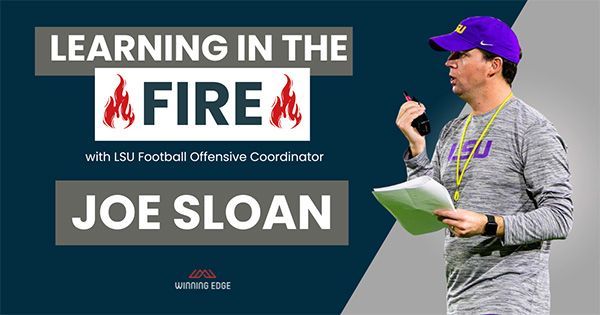
Can I give you some terminology for what you're saying?
I know you have some cool words. I don't have any.
I have a class on being wise versus being right.
There is no doubt.
You want them to be wise because if you're wise, you'll be right in the long term, but if you're trying to be right, you can never be wise because being right is all about my emotions right now. I'm trying to build for the future. I'm trying to build for a week, two weeks out, or whatever the situation calls for. You're trying to make them wise versus right, but being right makes a great athlete.
I love what you said here. “I want to be a mirror for you so that you can be a mirror for yourself.” Coach, that's good because you want them to see who they are so they can motivate because that's pulling out of them. It’s because if they can't see who they are, they don't know what's left of them. “You're an all-American. There's more in you.”
I think the hard part is being a mirror. It's maintaining their self-confidence. We deal with a lot, especially here. I've probably seen it here more than I did at Louisiana Tech. I think because of the level of attention that the players who are coming to LSU get on the way in. There's a lot of self-confidence naturally, so they weren't ever doubted up to this point.
I think the balance of maintaining their confidence while also showing them areas for growth and that's a balance. I've seen guys whose confidence gets a little chipped at early, and you have to be aware of that as a leader and try to build that back, too. I talk to this all the time. “This is what got me here,” especially with quarterbacks. “This is how I got here. This is how I got to LSU. This is me. This is who I am,” in terms of decision-making, style, or whatever that might be. That's what got you here, but that's not the goal. We have another place we want to go to, so we have to change our mindset on what we want to do. That's part of maintaining confidence because I want you to maintain your mentality about what got you here, but we're also going to adjust our process slightly.
The precious quote that I heard Trent saying in an interview. Someone was asking, “When did you start thinking about playing the NFL?” He laughed. He said, “I don't know if I said I'm going to play in the NFL and I'm going to go boom, boom, do this, this, and this.” He said, “I was too worried about becoming the best version of myself.” That's what I do every day of my life. “Did I get better today?” I thought I did all that. I know my wife didn't do any of that. It’s because I know his family, coaches, teachers, pastors, Coach Sloan, Coach Hose, everybody at Louisiana is a part of Trent Taylor's journey because he gets it. “I just got to get better now,” and trust the process.
That is why I love what Coach Kelly beats into our guys here. We don't talk about winning. We talk about our process and the traits that we want to build. We talk about our development because we can control it. We have control. They have control. You can point back to, “Why didn't I succeed? Why wasn't my best?” You weren't your best because let's go back and look at these three things and we could have controlled these better, which would've produced a better result. Not, “Let's win.” I think that's a funny balance because everybody's like, “Sometimes you just got to win.” That doesn't mean you're not competitive and you want to win.
To me, it takes the pressure off. In my coaching business, I deal with a lot of competitive and high performers, and I try to take the pressure off of them. Just get better. “What do you mean I got to get better?” You can get better. Even though you're playing at this level, which only half of a half percent of the players are playing at, you can get better. My job is to help you identify those things. “I don't need your help.” “What did you hire me for? I'm just here to help you take another step. I'm here to help you think through who you are and the talents that are within you to see where you need to go next.”
Winning Edge
That's why I call myself a wingman. I'm not here to drive the plane. I'm here to help you navigate the situation so you can get the plane to where you want it to go. That's all I'm doing. We got eight more questions to ask you. This is the last question, Coach. We're about out of time. I'm going to give you two minutes to answer this last question. What is your winning edge?
I always go back to my work ethic. I think that was ingrained. I watched my dad and he worked hard. I look at it and say, “There is no substitute for hard work.” I think I've gotten better at working smarter, being more prepared, and being more intentional about what I'm doing because sometimes I want to attack things with hard work or sometimes I get so scattered and do things for an hour and I've done nothing. I found myself doing that at times.
There is no substitute for hard work.
I think it’s working smarter, but I definitely think ultimately, you individually, if you want to be successful with anything, you have to work. I think the longer you're in your profession. You figure out how to work smarter and create more opportunities where you can sit and think. I was at a conference. People call it whitespace talking about your calendar. There were a couple of people who referenced it, and that was great to hear.
There needs to be some time where you have to sit. You have to think. You got to collect your thoughts and you got to plan. I do think I've gotten better at planning out my day, my week, and my month so that I can get things done a little bit more and be a little more task-oriented because it's important that I'm not just successful in my profession, but successful in my home.
You’re a husband and father, Coach. There is nothing more important and you're going to be great at that as well.
That's where you have to be careful, but I ultimately think that's what it goes back to.
Closing
You're amazing, Coach. I'm about to close here, so I'm going to give you some nuggets here that I heard you say. “Create an opportunity to relate. Is that somebody's domino effect or is that just one of your three to write down? You don't want to lose your voice. Share stories to relate. Get your own way or find your own way to do things. I want to be a mirror for you so that you can be a mirror for yourself.” That's another way of defining how to inspire someone.
Coach, my hat's off to you. I'm not an LSU Tiger fan, but I was when Jermauria Rasco played there and other kids from Evangel Christian Academy played there. However, since you're there, I'm an LSU fan and Coach Baker's there from Louisiana Tech. The whole Taylor clan, we’re Louisiana Tigers fans, so we're going to be cheering you on.
You did an amazing job and I knew there's so much wisdom in you. I appreciate and love your journey in life. The whole Taylor family can't say thank you enough for what you've done for our son. Just keep growing and keep getting better. Keep changing people's lives is what you can do for us. If there's anything that I can do for you or my family can do for you, Coach, all you have to do is reach out. Remember, your wife's name's Taylor. That's a reminder.
GT, I appreciate you and our relationship over the years. Also, the relationship that I got to build with Trent watching him and his success, and how proud I am of him. Your whole family, you have always been unbelievable to me and an inspiration to me, as well as a great sounding board, backboard, and a great friend. I appreciate all that.
Thank you, sir. You better have three things written down fan group. I have one thing. Let's get that one thing because, as one of my bosses told me, he said, “Greg, the most powerful thing you can do is figure out the most powerful thing to do.” That's the domino effect. That's that one little thing. If you can get good at that one little thing, it will knock the rest of the dominoes down. Also, if you take the smallest dominoes, say something that big, 30 dominoes later, it will knock down the tallest building in the world, which is in Dubai. Thank you, Coach Sloan. Thank you everybody for joining us. As we always say, let's grow. Thank you all very much.
Important Links


